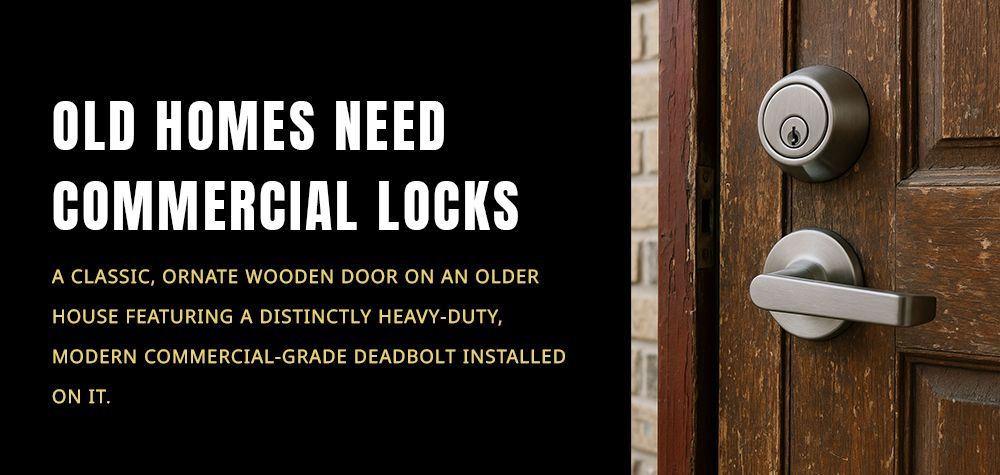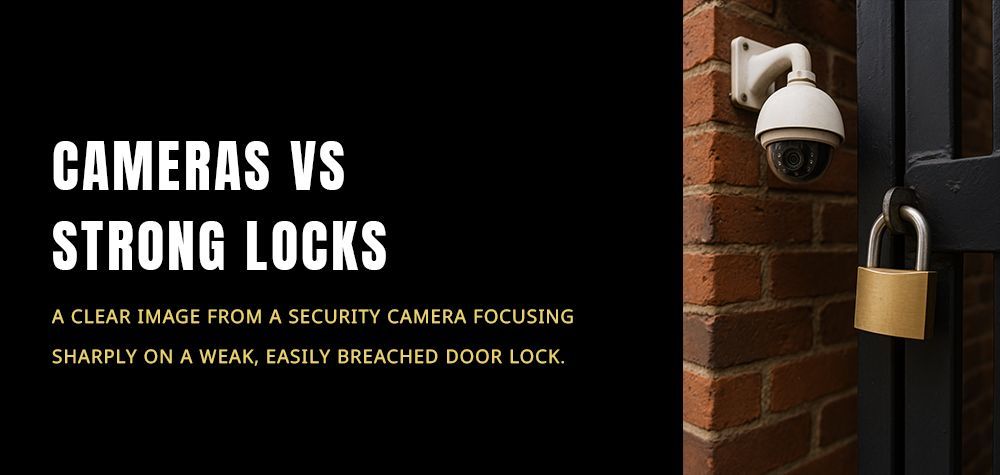Why Do Locks Rust? Common Causes and How to Prevent It
There’s nothing quite as frustrating as inserting a key into a lock only to find that it won’t turn. Even worse, sometimes the lock becomes so corroded that it refuses to open at all. Rust is the silent destroyer of locks, weakening their structure and making them unreliable. Whether it’s the lock on your front door, car, or storage shed, rust can take over and render it useless. But why do locks rust in the first place? More importantly, how can you prevent it? Let’s break it down so you never have to deal with a jammed, corroded lock again.
Understanding Rust: What Causes It?
Rust forms when metal is exposed to oxygen and moisture for prolonged periods. This chemical reaction, known as oxidation, weakens the metal and results in the reddish-brown flakes we associate with rust. Locks, which are often made of iron or steel, are highly susceptible to this process. But oxidation alone isn’t the only culprit; several external factors can accelerate rusting and make it even more problematic.
Common Causes of Rust in Locks
1. Exposure to Moisture and Humidity
Locks installed in areas with high humidity, such as coastal regions, are more likely to rust. When metal locks absorb moisture from the air, they become vulnerable to oxidation. Outdoor locks are particularly at risk, especially if they lack a protective coating.
2. Rain, Snow, and Extreme Weather
Weather conditions play a significant role in lock rusting. Rain and snow introduce excess water into locks, which can seep into small crevices. If the lock isn’t dried properly, this moisture lingers and speeds up rust formation. Freezing conditions make matters worse, as trapped water expands when it freezes, leading to cracks and further damage.
3. Salt and Corrosive Elements
Locks near the ocean or exposed to road salt in winter can corrode much faster than those in milder environments. Salt accelerates oxidation and can quickly turn a sturdy lock into a rusty mess. Even locks on vehicles suffer from this issue, as road salt can accumulate and work its way into lock mechanisms.
4. Poor Maintenance and Lack of Lubrication
Like any mechanical system, locks need regular care. Without proper maintenance, dirt and grime build up inside, trapping moisture and leading to rust. Lubrication helps form a protective barrier against moisture, but when neglected, locks dry out and become susceptible to rusting.
5. Low-Quality Materials
Not all locks are created equal. Some are made of higher-grade materials, such as stainless steel or brass, which naturally resist rust better. Cheaper locks made from low-quality steel or iron rust much faster, especially when exposed to the elements.
How to Prevent Locks from Rusting
1. Choose Rust-Resistant Locks
If you live in a humid or coastal area, consider investing in locks made from stainless steel, brass, or locks with protective coatings. These materials are less prone to rust and will last longer in challenging environments.
2. Keep Locks Dry
Prevention starts with minimizing exposure to moisture. Wipe down outdoor locks after rain, snow, or humid conditions. If possible, install a small cover over outdoor locks to shield them from the elements.
3. Apply Protective Coatings
Using anti-rust sprays or silicone-based lubricants can provide a moisture-resistant barrier. Regular applications help prevent oxidation and keep locks functioning smoothly. Some people also use graphite powder as an alternative lubricant to keep locks dry and rust-free.
4. Lubricate Locks Regularly
Regular lubrication not only prevents rust but also ensures smooth operation. Apply a small amount of lock lubricant every few months, especially before winter or rainy seasons. This prevents moisture from settling inside the lock mechanism.
5. Clean Locks Periodically
Dirt and grime trap moisture, accelerating rust. Use a cotton swab or compressed air to clean out debris inside the lock. For exterior locks, wiping them down with a mild soapy solution can remove salt buildup and other corrosive elements.
6. Use Weatherproof Lock Covers
If your lock is constantly exposed to harsh weather, consider using a weatherproof cover. These covers provide an extra layer of protection against rain, snow, and dust, reducing the risk of rusting.
What to Do If Your Lock Is Already Rusty
If rust has already taken hold, all hope isn’t lost. You can often restore a rusty lock with the right techniques.
- Apply a Rust Remover – Use a commercial rust remover or a homemade solution (vinegar and baking soda) to break down rust.
- Scrub the Rust Off – Use a wire brush or steel wool to gently scrub away rust buildup.
- Lubricate and Test – Once clean, apply lubricant to prevent future rusting and test the lock to ensure it works smoothly.
- Consider Replacing Severely Rusted Locks – If rust has deeply penetrated the lock, replacement may be the safest option to ensure security and reliability.
Conclusion: Rust-Free Locks Mean Peace of Mind
A rusty lock isn’t just inconvenient—it’s a security risk. The good news is that rust can be prevented with proper care and maintenance. By choosing the right materials, keeping locks dry, and applying protective coatings, you can ensure your locks stay functional and rust-free for years. If rust does appear, quick action can often save the lock before it becomes too damaged. With these simple preventive steps, you’ll never have to deal with a stuck or corroded lock again.
Call Us Any Time!






